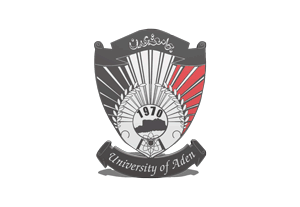PREVALENCE AND PREDICTORS OF BURNOUT AMONG NATIONAL HUMANITARIAN AID WORKERS, ADEN/YEMEN
DOI:
https://doi.org/10.47372/ejua-ba.2025.2.446Keywords:
Aid Workers, National Humanitarian aid workers, Psychosocial Hazards, Burnout, Aden Governorate, YemenAbstract
Burnout is a global public health problem of great concern that can develop among all types of professions. It’s a significant psychosocial hazards outcome. This research aimed to identify the relation between workplace psychosocial hazards and burnout among national humanitarian aid workers in Aden governorate/Yemen. A cross-sectional study was conducted from June-August 2024 in 32 UN, International, National and Local organizations in Aden/Yemen. A convenience sample of 315 national humanitarian aid workers participated. A self-administrated questionnaire adapted from Copenhagen Psychosocial Questionnaire III and Copenhagen Burnout Inventory was distributed to collect data. Data were checked, and entered to SPSS-23 for analysis. The overall prevalence of burnout was 36.5%, prevalence of personal burnout constitutes 53.4%, work-related burnout 39.6% and 33.6% for beneficiaries-related burnout. According to the binary logistic regression, those who experienced high work-life conflict demonstrated significantly higher personal (AOR = 4.047; 95% CI: 2.247–7.290), work-related (AOR = 2.811; 95% CI: 1.520–5.198), and beneficiaries-related burnout (AOR = 2.455; 95% CI:1.365–4.413). Quantitative demands were associated with increased likelihood of personal (AOR = 2.120; 95% CI: 1.108-4.054) and work-related burnout (AOR = 2.087; 95% CI: 1.036–4.207). Low vertical trust heightened risks of personal burnout (AOR = 2.222; 95% CI: 1.108–4.457), and beneficiaries-related (AOR = 2.129; 95% CI: 1.155–3.928). Emotional demands increased personal (AOR = 2.622; 95% CI: 1.372–5.010) and work-related burnout (AOR = 2.513; 95% CI: 1.290–4.896). Job insecurity and role conflict elevated risk of work-related burnout (AOR = 2.078; 95% CI: 1.127–3.832), (AOR = 1.952; 95% CI: 1.041–3.661) respectively. Low organizational justice and low possibilities for development increased risk of work-related burnout (AOR = 2.173; 95% CI: 1.080-4.374), (AOR = 2.146; 95% CI: 1.104-4.172) respectively. Burnout is a major problem among national humanitarian aid workers in Aden-Yemen. Aid environment encompasses psychosocial hazards associated with burnout. These underscored the importance of reviewing organizations' policies regarding mental health, and providing psychological support for national aid workers.
Downloads
Downloads
Published
How to Cite
Issue
Section
License

This work is licensed under a Creative Commons Attribution-NonCommercial 4.0 International License.










